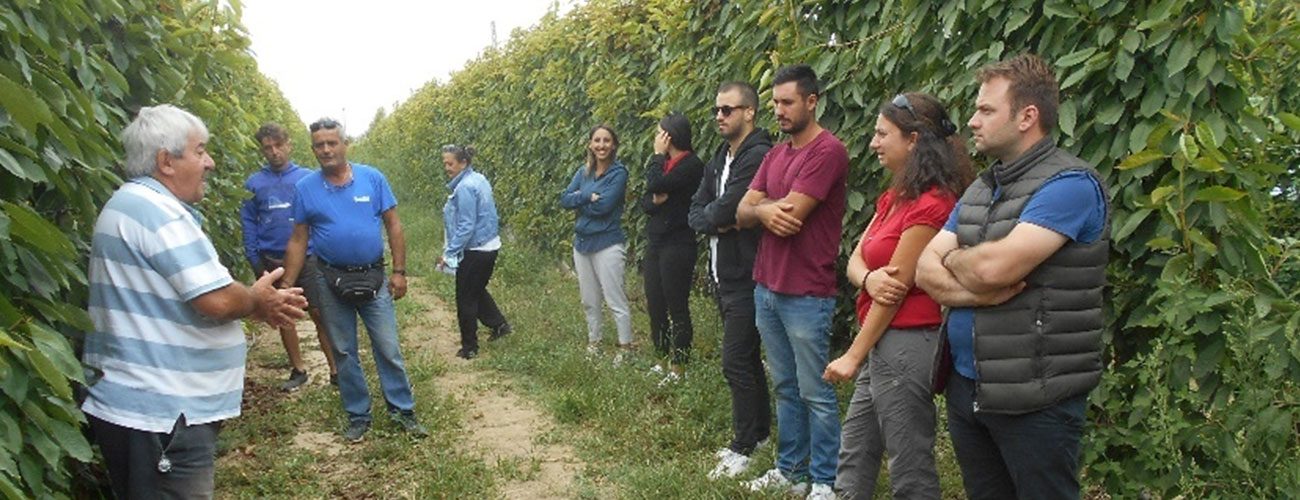What’s the Good Practice about?
This Good Practice is a training program for young entrepreneurs, aiming at enhancing Circular Economy in the agri-food sector. The practice focuses on agriculture and four sub-sectors (fruit-tree farming, viticulture, medicinal and aromatic plants, and beekeeping). For each of these sub-categories, a training module was developed. They consisted of 31 hours synchronous and asynchronous online training, including input on the principles of circular economy. The participants gained knowledge on innovative growing methods, sustainable agriculture, product processing, making use of byproducts, collaboration with end users, making use of financing tools, new business models, and new policies on a national and European level. Additionally, the participants were trained in how to come up with their own ideas and to develop them into business plans and business models, and how to pitch them to investors. This was accompanied by on-site practical work.
Why implementing the Good Practice? What are the special features of the Good Practice?
The region of Western Macedonia is transitioning from coal towards a sustainable economy. There is a high unemployment rate and shutting down coal power plants will increase that. Therefore, vocational training is needed to employ these people in a sector with high potential. Providing innovative skills to farmers can increase regional income and create new jobs, helping Western Macedonia’s post-coal economy.
The practical sessions involved local companies and farmer cooperatives. This way the target beneficiaries (young farmers and unemployed people) were brought together with the local community of farmers and companies involved in the specific sub-sectors.
What are the challenges in implementing the Good Practice?
What’s the key to success?
The geographic conditions of Western Macedonia are well suited for the four sub-categories and the region is already transitioning towards a sustainable economy. This is not given in every region. Also experienced academic staff is needed for this training program. Funding and regional political mechanisms are needed to support this project. The involvement of regional stakeholders has also proven helpful in the recruitment process for participants.
For the successful outcome of the project, a successful completion of the training by an adequate number of participants with high attendance rate is needed. There must be good coordination and cooperation between the stakeholders involved and the educational institution in the region where the practice is intended to be adopted. That means that there must be joint effort, in terms of facilities and material-equipment, to have successful results.

